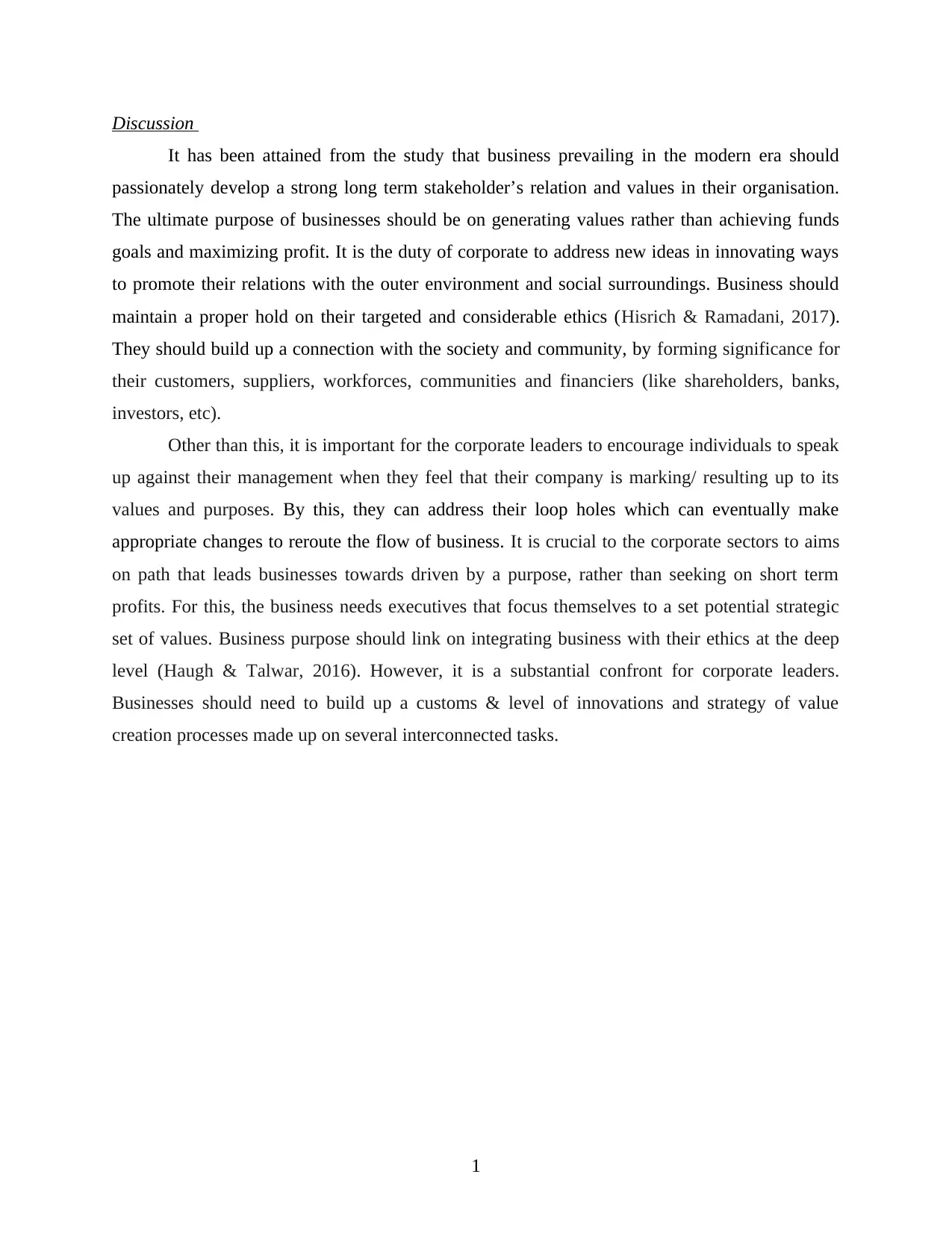Corporate Social Responsibility Discussion: Business Ethics, Values
VerifiedAdded on 2022/09/27
|3
|380
|21
Discussion Board Post
AI Summary
This discussion post explores the critical role of Corporate Social Responsibility (CSR) in modern business. It emphasizes the importance of ethical business practices and the development of strong stakeholder relationships, including customers, suppliers, employees, and investors. The assignment highlights the need for businesses to prioritize value creation over short-term profits and to integrate ethical considerations into their core strategies. It also addresses the significance of fostering an environment where employees can voice concerns about company practices. The discussion delves into the challenges faced by corporate leaders in implementing CSR and the need for innovative approaches to promote social and environmental responsibility. References from Haugh & Talwar (2016) and Hisrich & Ramadani (2017) support the arguments presented.
1 out of 3










![[object Object]](/_next/static/media/star-bottom.7253800d.svg)